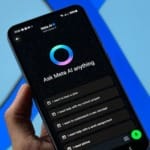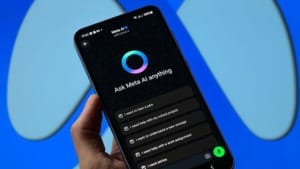Apple tests blood glucose monitoring app for pre-diabetes management
Apple trials a blood glucose app for pre-diabetes, guiding dietary choices for at-risk employees and hinting at future health tool expansion.

Apple is reportedly exploring a new path in health technology with an app designed to help pre-diabetic users manage blood glucose levels. According to Bloomberg’s Mark Gurman, Apple recently trialled this innovative software among pre-diabetic employees, focusing on improving their diet and lifestyle habits. Although no plans exist to release the app to the general public, it may lay the groundwork for future health-related offerings.
Table Of Content
Testing for early diabetes intervention
Apple’s research team selected employees at risk of Type 2 diabetes for the app test, confirming their status through blood tests. These participants monitored their blood sugar daily, logging data from glucose-monitoring devices available on the market. The app could identify patterns and provide personalised suggestions by tracking their dietary habits and corresponding glucose responses. For instance, if blood glucose levels spiked after eating pasta, the app would recommend reducing or avoiding that dish.
Though still in the testing phase, the app’s approach could mark a significant advancement in preventive healthcare. It addresses Type 2 diabetes risk through accessible, tailored guidance on nutrition and lifestyle.
The broader vision for Apple Health
Gurman notes that Apple paused this test to focus on other priorities within the Apple Health suite. This service already includes features like heart rate monitoring and fitness tracking but lacks meal tracking—a gap that rival apps often cover. Including meal-tracking capabilities and better integration with third-party glucose monitoring devices could make Apple Health more robust for managing conditions like diabetes.
As Apple explores the potential of glucose monitoring technology, it’s unclear if this app will become part of the standard Apple Health offerings. However, the company’s continued interest in diabetes-related technology suggests they may be laying the groundwork for a more comprehensive health tool.
Apple’s long journey towards non-invasive glucose tracking
While the app’s potential is exciting, it isn’t directly connected to Apple’s long-standing research into non-invasive glucose monitoring. Over the last 15 years, the tech giant has reportedly developed a device to measure blood glucose without blood samples. This concept remains a focal point for Apple’s health technology research. This device, still in its prototype phase, is said to be about the size of an iPhone and utilises lasers to analyse glucose levels by projecting light into the skin.
If successful, Apple’s non-invasive glucose monitoring technology could revolutionise diabetes management, particularly if integrated into future versions of the Apple Watch. However, early consumer-facing versions of this feature would likely be limited to alerting users if they might be pre-diabetic rather than providing precise glucose readings. Full functionality could only arrive after further refinement in subsequent models.
As Apple continues to test and develop its health-focused technology, its efforts reflect a growing emphasis on preventive care. Although this app may not reach the consumer market soon, it suggests that future Apple Health products might offer more proactive tools for managing chronic health risks like Type 2 diabetes.
















